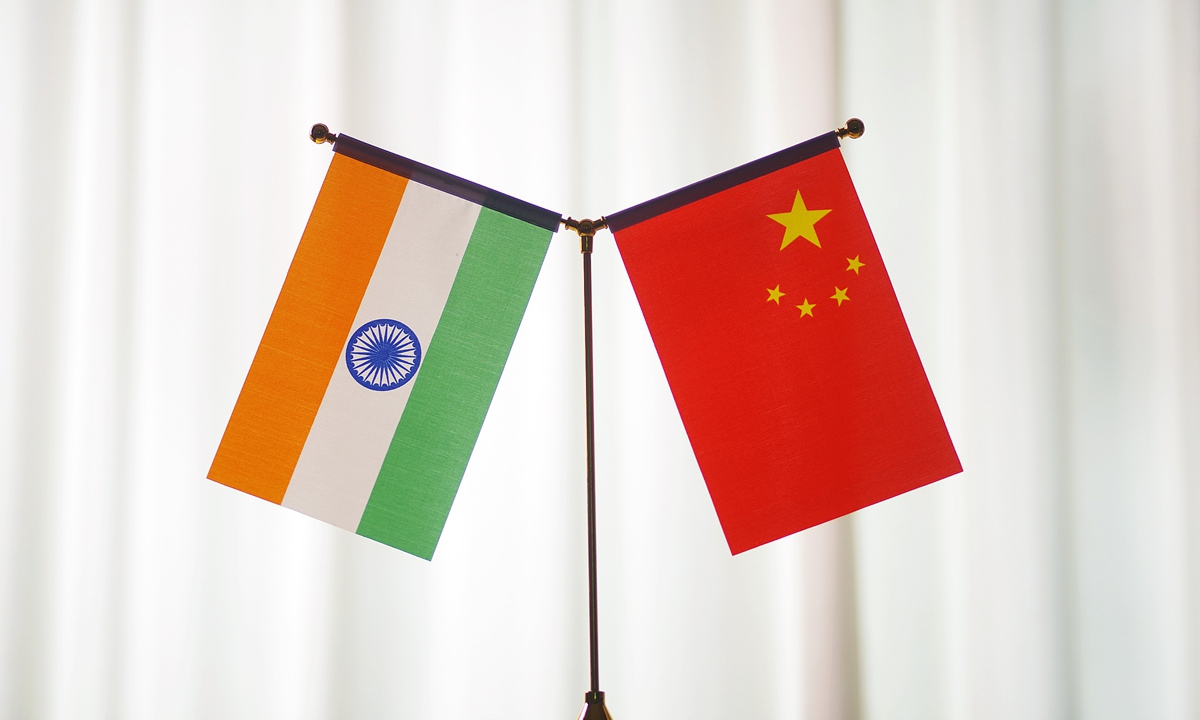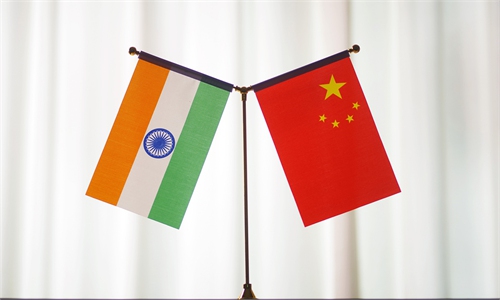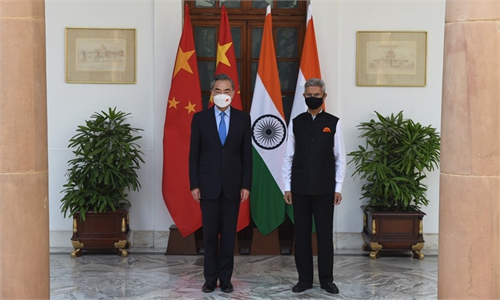GT Voice: India shouldn’t be fooled by Western hype about competition in Sri Lanka

China India Photo:CFP
After India signed an agreement to set up hybrid power projects on northern Sri Lankan islands, the US-based Associated Press described in a report the signing as India's "strategic victory in its competition with China for influence in the Indian Ocean." The report also noted China's announcement in December to suspend power plant projects in three Sri Lankan islands.As some Western media outlets, at the cue of their governments, seemingly never grow tired of trying to drive a wedge between China and India, it is not uncommon to see Sri Lanka played up by Western media and even some Indian media outlets as a battleground where India and China compete for geopolitical influence.
In terms of the power projects, it should be noted that the construction of infrastructure projects such as power plants in a foreign country involves a very complicated process, and any factor may affect the final implementation of such projects. Like any commercial projects, the plants in Sri Lanka should be judged by commercial factors and their ultimate results, rather than narrow-minded zero-sum geopolitical mentality.
Using the announced plans to hype up who is winning or who is losing in the competition for economic and political influence in Sri Lanka is not only misleading but also tremendously disrespectful to the Sri Lankan side. If anything, in terms of economic cooperation with Sri Lanka, China and India should focus on win-win cooperation instead of competition with a view of promoting regional development. That's what China has been emphasizing in cooperation with any other country.
China and India both have considerable investment, loans and infrastructure projects in Sri Lanka. In particular, under the Belt and Road Initiative (BRI) framework, China and Sri Lanka have conducted extensive and in-depth cooperation across various fields, producing tangible results. And it is important to note that those BRI projects were founded on the basis of bringing benefits to the local society and promoting local development.
Moreover, Sri Lanka's economic cooperation with China, India or any other country is not exclusive. While it is no secret that Sri Lanka is one of the South Asian nations that share a close relationship with India, China's investment in the nation will not undercut India or any other third party, when it comes to developing relations with South Asian nations. Economic and trade cooperation is conducive to regional economic development, peace and stability in the region, which is also in line with the interests of India.
Likewise, the mutually beneficial cooperation between Sri Lanka and India, or any other party, will also help boost the local economy, which is also beneficial to China's investment in the region and could even bring new cooperation opportunities for Chinese companies there.
The China-India relationship has encountered quite a few setbacks in recent years. But the recent visit by Chinese State Counselor and Foreign Minister Wang Yi to India days ago, which has been described as an "ice-breaking" trip, has sent some positive signals, fueling expectations for improved bilateral ties to a certain extent.
Even though China and India may not be able to bridge all their differences in the short term, that shouldn't hinder them from creating more conditions for managing their differences by seeking mutually beneficial trade and investment cooperation in various sectors and regions, including Sri Lanka.
In light of the Russia-Ukraine conflict, what is happening in Europe right now shows that if China and India want to build their own order of lasting peace and development, they cannot rely on the US-dominated West, let alone forming an alliance with them. That leaves cooperation and common development as the most viable option for the two largest developing countries in Asia.
The development of China-India relationship will determine the direction of the "Asian Century." If Asia's two largest developing economies can join hands and work toward the same direction, it would benefit not just Sri Lanka, but the Asia Pacific and the global community as a whole. The West, as shown in their relentless attempts to drive a wedge between China and India, certainly does not want to see that, but it is hoped that the Indian side will be clear-eyed about such attempts.


